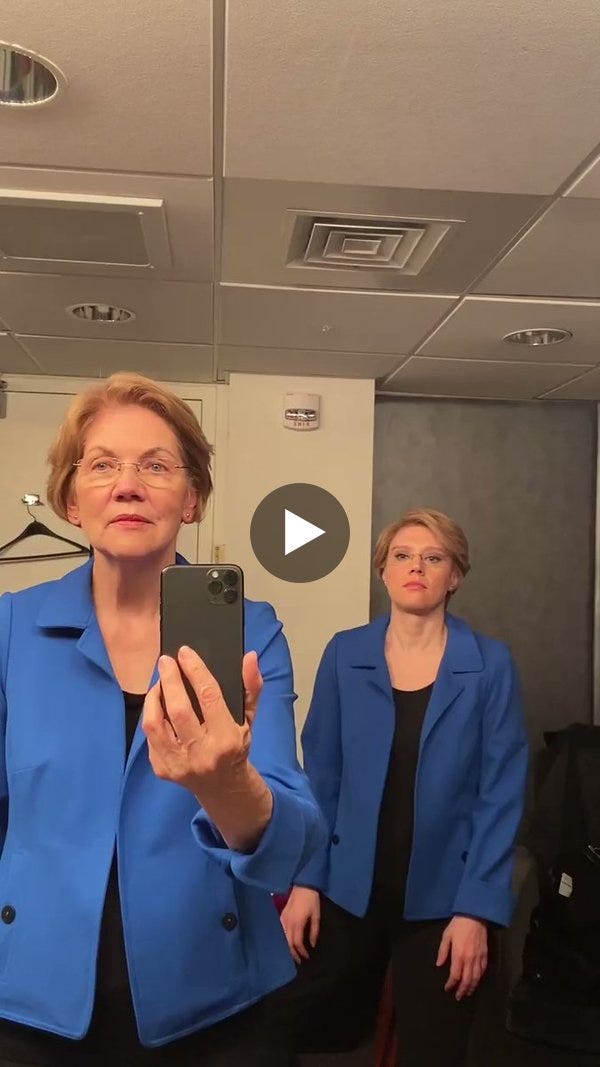Tippets by Taps - Issue #125
This week we explore COVID-19’s impact on hourly workers, kids brilliantly DDOS'ing a homework app, Gap’s new CEO, what the end of a political campaign means for staffers, and more. Enjoy!
Coronavirus Poses Dilemma for Workers Who Risk Losing Pay
COVID-19 has wreaked havoc across the world this week. Markets have dropped precipitously, conferences have been cancelled, and private market investors are talking about RIP Good Times 2.0. The ultimate impact COVID-19 will have on the global economy will not be known for some time. However, the effects are already being acutely felt by one group in particular: hourly workers in the services industry.
3.6 million U.S. workers with no access to sick leave would face a dilemma should they get sick during the coronavirus epidemic: stay at home and see paychecks shrink, or go to work and create health risks
About 86% of U.S. workers were employed in service industries last year, up from about 60% in the 1950s, as jobs in health care and hospitality have surged in recent decades.
Companies are evaluating sick-leave policies and focusing on prevention, including improving workplace hygiene and sending a message that ill employees shouldn’t attend work, said Scott Hamilton, global managing director at human-resources consulting firm Arthur J. Gallagher & Co. Mr. Hamilton said companies that knowingly allow an employee with an infectious disease, such as Covid-19, to work could be in violation of federal workplace safety laws. He also said the virus arrived amid historically low U.S. unemployment, making it likely that companies will be more flexible in enforcing any restrictions on sick time. “With the tight labor market, most employers do not want to have to replace existing employees,” he said. “I do suspect we will see an increase in flexibility.”
While it is easy for full time employees of large multinationals to adjust their schedules, limit travel, and work from home, hourly workers don’t have the same luxury. Workers are forced to choose between missing work and losing the income and potentially losing the job, or going to work and risking contracting the virus. Some companies are committing to pay hourly workers at their already scheduled rates but it is not enough.
Quarantined Wuhan kids hacked their way out of app-based schooling
COVID-19 has rightfully taken over the media cycle. While most stories are fear or panic inducing, this one out of Wuhan (the epicenter of the crisis) put a smile on my face.
Schools were shut down as the spread worsened. And the quarantined kids were relieved to be off school … until they learned an app called DingTalk had been adopted so kids could get lessons and homework remotely. But that didn’t stop the children from beating the system.
“Somehow the little brats worked out that if enough users gave the app a one-star review it would get booted off the App Store. Tens of thousands of reviews flooded in, and DingTalk’s rating plummeted overnight from 4.9 to 1.4. The app has had to beg for mercy on social media: ‘I’m only five years old myself, please don’t kill me.’”
The kids are going to be alright.
Gap finds new CEO within its own ranks
Old Navy and Gap have been on again, off again, on again. After announcing plans to spin off Old Navy from Gap a year ago, earlier this year the companies told the street j/k, we’re actually not splitting up. Now Gap has a new CEO, Old Navy chief Sonia Syngal.
With Gap since 2004, Syngal has led Old Navy since 2016 and was slated to become the CEO of the Old Navy spinoff. She is widely credited for rapid growth at Old Navy under her leadership, with the single brand accounting for nearly half of Gap Inc.’s $16.6 billion revenue in 2018. But Old Navy’s growth curve went into reverse in 2019, which complicated Gap’s plans to split it off on its own.
At Gap, she will replace Robert Fisher. Fisher, the company’s executive chairman, has been serving as interim CEO since Gap fired Art Peck last November after he was unable to engineer a sales turnaround.
Syngal said her top priority will be “strengthening the performance of the portfolio,” which has struggled under mass transformation of the retail industry. In addition to Gap and Old Navy, the company also owns Banana Republic and a collection of specialty brands, including Athleta, Janie and Jack, Intermix and Hill City.
Their Campaign Jobs Just Dried Up. And on Venmo, the Drinks Are Flowing.
This week saw four US presidential candidates - Elizabeth Warren, Amy Klobuchar, Mike Bloomberg and Pete Buttigieg - drop out of the race. While the candidates get most of the press, they will be just fine. Their campaign staffers, teams of folks who have worked tirelessly for months? Trying to figure out what’s next. But before that - drinks please.
Welcome to the unseen and surprise Venmo economy of collapsed campaigns in 2020, where political operatives have been, for months, sending drinking money digitally to their friends, former colleagues and rivals using the money-transferring app.
The practice has spread unexpectedly and unplanned from campaign to campaign, like a viral video with a life of its own: $10 here, $25, even $100. It peaked this past week as Ms. Warren followed Tom Steyer, Pete Buttigieg, Senator Amy Klobuchar and Michael R. Bloomberg to the exits.
Elizabeth Warren and Kate McKinnon "Flipped the Switch" in This Hilarious TikTok Challenge
No comment other than this video is awesome and made me laugh (especially Kate McKinnon struggling to hold it together at the end). I have probably watched it 15 times…

𝗙𝗹𝗶𝗽𝗽𝗲𝗱 𝘁𝗵𝗲 𝘀𝘄𝗶𝘁𝗰𝗵. https://t.co/t8qHcGRUhY
9:27 PM - 7 Mar 2020
Quote I’m thinking about: “I struggle and plunge frightfully, and when written, my words don’t express my thought…I wish I could make my writings touch a higher plane, but I don’t well see how I can…” - Theodore Roosevelt



